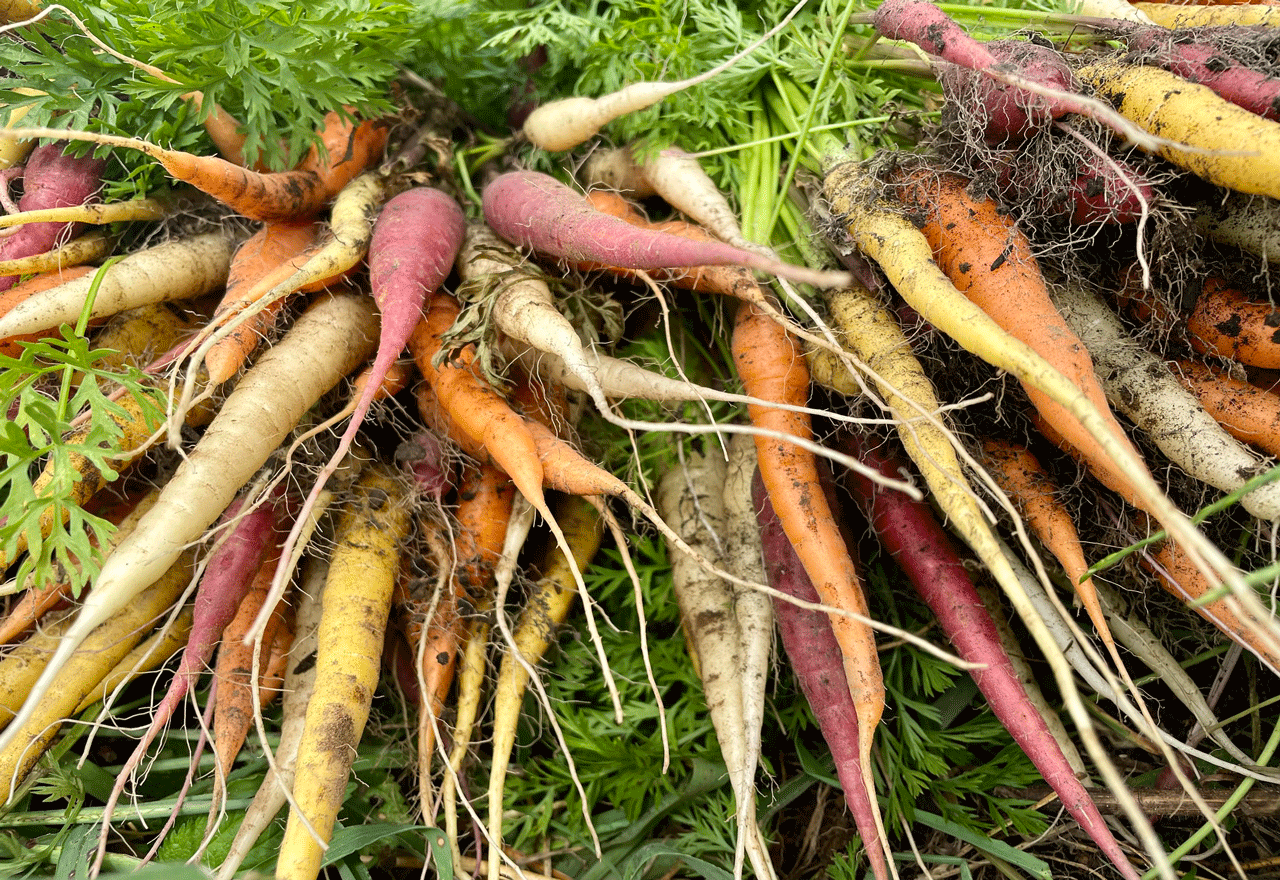A New Hampshire food hub models how community support is essential to the future of organic farms
By Michele Marchetti
One year after Molly Alfonso joined Vegetable Ranch, her mentor — owner and organic food champion Larry Pletcher — suddenly passed away. “I was devastated,” she recalls. “It was hard to move forward. But I went back to work the same day it happened. That’s what Larry would have wanted.”
As one of the first certified organic farms in New Hampshire, Vegetable Ranch is a 30-year-old community institution. As its tagline states, Pletcher and his team “believed in organic before organic was cool.”
Alfonso, 28 and a relatively new organic farmer, is an integral reason his values live on today. Not long before his death in 2021, Pletcher had been clearing a small piece of land for Alfonso, who was commuting an hour daily, so she’d have housing on the farm. His passing accelerated those plans. His daughter, who inherited the business, immediately invited Alfonso to take over. Alfonso and her husband moved into a yurt on the farm, he quit his chef job, and they dedicated their days to figuring out how to continue, and build on, Pletcher’s work.
A well-worn piece of paper has hung above Alfonso’s desk ever since. Delivered by a member of the Kearsarge Food Hub (KFH), it lists the names and numbers of people in the local food community who could help her. To Alfonso, that paper has been a lifeline and a constant reminder of an organization ready to bridge the knowledge gaps left by her predecessor’s sudden passing. It reminded her that she was not alone as she navigated her grief and the challenges of a farm transition, not to mention a drought and a pandemic.
In the year since, Alfonso has relied on the food hub for connections to other farmers, copies of samples invoices, and brutal honesty.
Supporting local farmers is an essential part of the mission for Kearsarge Food Hub, which has provided a retail outlet and community resource to Vegetable Ranch for many years. While most food hubs aggregate and distribute local food, KFH is a nonprofit that centers education, community engagement, and relationship building— modeling the hope and potential in regional organic food systems.
KFH invites community members into the lives of farmers without romanticizing a livelihood that can be grueling. At a recent “Meet Your Farmers and Makers” event, Aaron Lichtenberg, who started farming about 10 years ago, noted the challenges of land access. Since he leases land, he must adapt to someone else’s whims. He used to sell his certified organic vegetables from Winni Woods Farms at area farmers markets and CSAs. Due to a change in land use, he now sells cut flowers and jarred goods made with vegetables from partnering farms.
Highlighting the unvarnished stories of these small farms is crucial at a time when one-third of farmers in the US is older than 65. On a recent fall afternoon that sent Alfonso into the fields to plant garlic, she had her mind on other farmers stepping up to take the reins. “We need to build the next generation,” she said.
The garlic she grows is more than a local, pesticide-free, sustainably grown crop. It’s a testament to the organic farmers who are building their own legacies.


